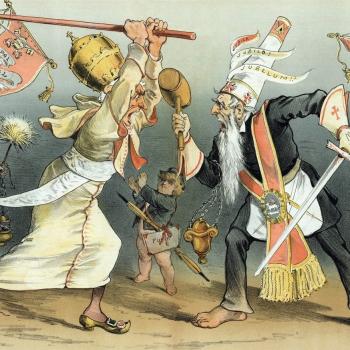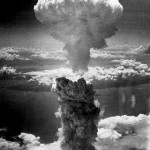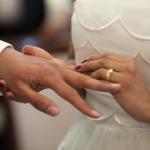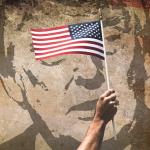Noted at The Corner:
To see the danger we face because of Obama’s return to a law-enforcement approach to terrorist interrogation, read today’s front-page story in the Washington Post.
At the very end of the article, the Post notes:
Abdulmutallab remains in a Detroit area prison and, after initial debriefings by the FBI, has restricted his cooperation since securing a defense attorney, according to federal officials. Authorities are holding out hope that he will change his mind and cooperate with the probe, the officials said. (Emphasis added)
Writes Marc Thiessen: Holding out hope? Change his mind? Are they kidding? A terrorist like Abdulmutallab is not a common criminal who should be told he has the “right to remain silent.” He is an enemy combatant, who tried to commit an act of war against the United States of America. He possesses vital intelligence about the terrorist network that deployed him to attack America, and may be planning still more attacks. The Obama administration has a responsibility to make him give up that information. Treating him like a criminal is an abdication of that responsibility, and puts our nation at risk.
There is a later note:
Several readers have pointed out that the Post has mysteriously dropped this line, which appears in the print edition, from the online version:
Authorities are holding out hope that he will change his mind and cooperate with the probe, the officials said.
I guess they have given up hope?
Yeah, so, this is how we’re going to fight terrorism: we’re going to read them their rights, lawyer them up and then hope against hope that maybe they’ll wave their right to remain silent, so we can prosecute them. And maybe they’ll tell us all about the operation that supports them, too, and where they were trained and by whom. And why will they tell us all of these things? Well, because we’re nice, or because they don’t want to go to Federal prison where they can hang out with other terrorists from ‘way back in ’92. At least they’ll have prayer-buddies and fellowship. Or maybe they’ll talk because we’ll cut them a deal if they do. Immunity?
I don’t want to be overly critical, here -and I have no intention of “blaming Obama” for what -except for a failed detonation- was for all intents and purposes, a successful attack on the US, and one that will clearly hearten Al Qaeda; as President Bush used to say, “we have to be lucky every day but the terrorists have to be lucky only once,” and so I don’t call this “Obama’s fault.” Yes, there were serious failures involved here; after 8 years without an attack, we had perhaps become a bit complacent, but -unless a president and administration actually puts policies in place to weaken our security- the blame for a terror attack always goes to the terrorist.
Still, it seems to me that the law-enforcement model of terrorism-combat is not a serious mode of operation in a time of war. We saw this tactic before, under the Clinton administration. Back then, I am not sure anyone really understood what they were dealing with. The WTC bombers of ’92 were tried and imprisoned, but that did not stop terrorism from being used as a means of movement by Islamic extremists. Al Qaeda continued to attack American interests and holdings (and her naval vessel the USS Cole) every year-and-a-half, or so. President Clinton made little overt response to the provocation, even more or less allowing the Cole attack to go unaddressed because he did not want it to weigh heavily on an impending election. What Osama bin Laden saw in all of that was “the weak horse.”
Because we were so very damned reasonable about terrorism, the terrorists figured they could attack us on our own soil. They took out two towers; they hit the Pentagon; they seemed to be aiming to hit the White House or the Capital, as well.
After 9/11, no administration can claim not to fully understand what we are facing; that bird has flown. The Clinton administration might be forgiven for believing that law-enforcement norms could sufficiently address and discourage terrorist attacks on our nation, or our interests. The Obama administration, however, knowing what Clinton did not know – which was “how far” AlQaeda would go – has no business suggesting to the American people that someone who wants to indiscriminately kill as many people as possible, for the furtherance of a specific ideology (and theology) is not acting as an enemy combatant in wartime, simply because he is not in a uniform.
Knowing, now, how far Al Qaeda will go, it seems to me profoundly disrespectful of the Obama administration to suggest that because they do not especially like war, there is no war going on. No one likes war. No one wants war. But to pretend there is no war –that a thing is not a war, simply because you don’t want to call it a war, or respond in war-like fashion- is incredibly disconnected from (and disrespectful of) the real risk being shared by the whole nation.
If my frequent-flyer husband is in a plane that someone decides must be turned into a weapon of mass destruction, I’ll be damned if anyone is going to tell me that these terrorist attacks are “a nuisance” that we’ll just have to live with, that sometimes a bad guy will slip through, and then we’ll then figure out who to jail for it. Terrorism as a means of movement must become an unattractive gambit for Al Quada or any other extremist organization, either here or abroad. The promise of a public day in court and jail time seems to me an insufficient deterrent. You discourage terrorists by doing what President Bush did: you freeze their assets, dry up the flow of funds, destroy the training grounds, take out the leadership and -if you really have the guts to try it- you help a people subjugated by a centuries-old mindsets and tribal grudges to come together and decide their own fate, and maybe help them into the marketplace of goods and ideas; if you create a partnership, you stifle the impulse to destroy.
That’s a vision thing, though. A president who wants to accomplish all that will have to work very hard to both articulate the vision and make it happen, even in the midst of the freezing, and the taking out and the drying up. It’s not easy. It’s hard work, and it takes stamina. And vision.
But even without the vision, a president who cannot (or does not wish to) encourage the sort of democratic change Bush supported in Iraq can still be a worthwhile and successful president f he can manage to keep America safely regarded as a strong, and not weak horse, and the terrorists frustrated.
There are reports that President Obama has sent some cruise missiles out Yemen-way and that he is weighing his options, now; he is doing the right thing. Meanwhile, let us figure out all the ways the dots failed to get connected in this incident. What this attack has shown us is that America cannot afford to be static, because the enemy is not static. Procedures put in place after 9/11 (many of them recommended by the 9/11 Commission) will have to constantly be reassessed and updated. Good heavens, our computer virus-protection is constantly being updated to combat new threats as they emerge. Our national security must be updated just as frequently and relentlessly.
It took Barack Obama four days to identify our failures and find the right (if rather rushed-sounding) rhetoric with which to address the Christmas Day attack, and the failures that would have contributed to the deaths of hundreds. Now that he has found the right words, and he seems to be taking the right action (although…sigh…not wholly), let us pray for him and hope he has the stomach and the stamina for this difficult job.
UPDATE: Obama is taking heat for his delayed reaction. Mike Allen, among others, calls this “unfair”, and Josh Gerstein writes, in Obama’s defense, as well. Both argue that since President Bush took 6 days to talk publicly about the Richard Reid shoe bomber case, it is wrong to criticize Obama. Fair enough, I guess, except for one consideration which does make a difference: When Reid was prevented from igniting his shoe by his fellow passengers, Americans were completely aware that -silent or not- Bush was committed to the War on Terror and to our protection. Bush probably should have spoken sooner -apparently Michael Moore, among others complained about it- but on this issue, Bush was a completely known entity, and no one could doubt that, even if silent, Bush was working behind-the-scenes. Obama, who has increasingly seemed disengaged from things and gave a shaky performance after the Ft. Hood attack, is not that same known entity; his commitment to combating terrorism is not yet so absolutely defined and assured, and -given the timely warnings about Umar Farouk Abdulmutallab- this event is not an exact copy of Reid situation.
Barack Obama should certainly be given the latitude given Bush for keeping mum on the golf course, just as soon as he has demonstrated -as he appears to be trying to do, now- that he can be trusted to go after the bad guys and update our policies and procedures. And yes, we all want him to be successful in this
Byron York appears to agree with me.
So does The Weekly Standard:
If Richard Reid had been allowed to fly even though he was on a terrorist watch list, you better believe that Bush would have taken the heat that Obama is taking right now.
He’d be taking more heat.
Related:
CNN: CIA Failed to circulate report
WSJ: Airport Security Not as Bad as You Think
Hot Air: Yemen is going after AlQ
Clifford D. May: Can Obama learn to fly
Instapundit: It’s Better in Mogadishu?
Andy McCarthy: Bigger Government per 9/11 Commission, not especially better
Examiner: Obama Gives Interpol a Free Hand in US and more on that, here
Jake Tapper: Interpol thing? No big deal, really.
Victor Davis Hanson: They’ll be some changes made
For Crying Out Loud: J-Nap thinks unionizing the TSA employees will make us more secure. Once again, I insist that I be given this woman’s job. I know I could do it better.















